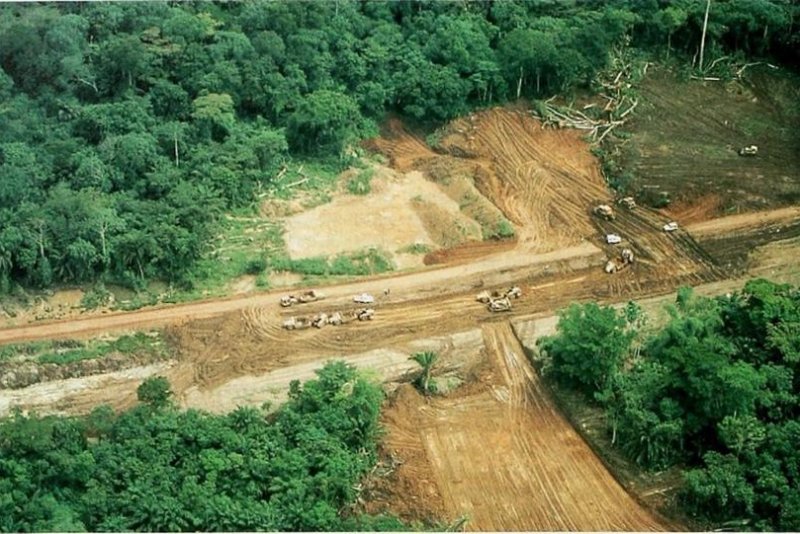New research suggests the construction of new road leads to deforestation and other negative ecological consequences. Photo by The Conservation Atlas of Tropical Forests: Africa/
Flickr
June 24 (UPI) -- New research suggests the proliferation of new roads in the Congo is encouraging an ecological catastrophe. Vital habitats are disappearing and vulnerable animal populations are declining.
During the past two decades, the rise in the number of roads crisscrossing the Congo Basin has enabled an uptick in a range of illegal activities, including logging and poaching.
"The situation in the Congo Basin is scary on top of more scariness," Bill Laurance, a professor at James Cook University, said in a news release.
Laurance and his colleagues used satellite images to measure the increase in road construction across the Congo. Since 2003, more than 54,000 miles of new roads have been added. Over roughly the same amount of time, deforestation rates have quadrupled.
"Industrial logging is a key economic driver for much of the road building," said Laurance. "Some logging roads are abandoned, but many are used by slash-and-burn farmers and poachers to penetrate deep into surviving rain forests."In addition to robbing animals of precious habitat, the new roads have made it easier for poachers to access their targets, including elephants, gorillas and chimps. Previous research has shown tropical logging activity also degrades downstream water quality.
Authors of the new study, published this week in the journal Nature Sustainability, calculated that new roads in the Democratic Republic of the Congo led to two to three time more deforestation than elsewhere in the Congo Basin.
"That's super-worrying because the DRC has plans to sharply increase logging," Laurance said. "Last year, it leased a massive 650,000 hectares -- 1.6 million acres -- of pristine rain forest to aggressive Chinese logging companies. And that's just the tip of the iceberg."
Outside of the DRC, roads are less threatening. Some former logging roads have been abandoned and the forest is being allowed to regenerate, suggesting the possibility for the sustainable harvesting of natural resources in the Congo.
"Of course, we'd greatly prefer to have pristine forests," Laurance said. "But African nations must earn money from their forests, and if better managed, selective logging could provide income and be a lot less destructive."
Unfortunately, sustainable activities are not the norm in the Congo. The latest research showed new roads in the Congo are accelerating deforestation and biodiversity losses in the region.
"Corruption and a massive influx of aggressive foreign developers is the biggest worry, along with rapid population growth," Laurance said. "It all leads to destructive development and road building."
Previous studies have shown simply closing roads and curbing new road construction can lead to the recovery of vulnerable and endangered species.















